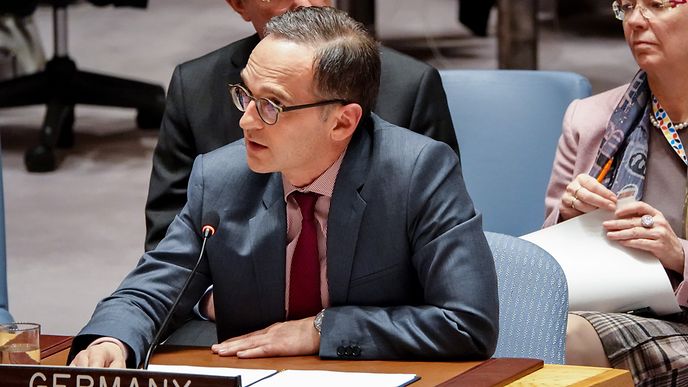Climate change poses increasing risks to peace and stability, contributing to a growing relevance of the climate and security nexus to foreign policy actors. To effectively address this topic and develop transformative options for action, it will be crucial to create political momentum, strengthen the bridges between science and politics, as well as the links with other societal actors.
In partnership with adelphi and the Potsdam Institute for Climate Impact Research (PIK), the German Federal Foreign Office will host the ‘Berlin Climate and Security Conference’ on Tuesday 4 June. The conference is set to bring together many high-level participants, including numerous foreign ministers, senior government representatives, top-ranking UN officials and prominent figures from the scientific community, private sector and civil society, to discuss the urgent need for coordinated international action to address climate security risks and prevent instability and conflict. Delegations from 29 countries will be present.
It came as a strong statement of intent as the link between climate change and security policy was stated as the top priority for Germany’s two-year term (2019-2020) as a UN Security Council elected member. This builds on the UN Group of Friends on Climate and Security it established with Nauru in August 2018 (and on the previous efforts of Sweden, the Netherlands, Belgium, France, the UK, Ukraine and Caribbean Small Island Developing States). German Foreign Minister and host of the Berlin Conference, Heiko Maas stated in his speech at the open debate of the UN Security Council addressing the Impacts of Climate-related Disasters on International Peace and Security in January 2019 that this group and the international network of experts that supports it will table proposals for the Security Council and the Secretariat. The commitments to further UNSC action in this area, expressed by numerous representatives at January’s debate, indicate that these proposals could receive broad and enthusiastic support.

Despite an increasing international awareness of climate-related security risks also furthered by the Planetary Security Initiative, an institutional home to address this topic is lacking. In the past two years several UN Security Ccouncil resolutions and presidential statements called for climate-related security risk assessment and management strategies in specific regional contexts.
The conference will discuss concrete mechanism to address climate-related security risks, such as conflict over national resources, territorial losses due to sea-level rise, trans-boundary water conflicts, and impending food shortages. In several round-table discussions and panel sessions topics like migration and displacement, socioeconomic conflicts and state fragility will be thematized under the angle of climate change.
The objectives of the Berlin Climate and Security Conference are to...:
- ...profile the foreign policy relevance of climate policy and the necessity of forming a global preventative framework for action;
- ...discuss the objectives and opportunities of UN Security Council action on climate and security;
- ..identify concrete preventative mechanisms for foreign policy actors to address climate-related security risks;
- ...highlight the need for quick and decisive action.



